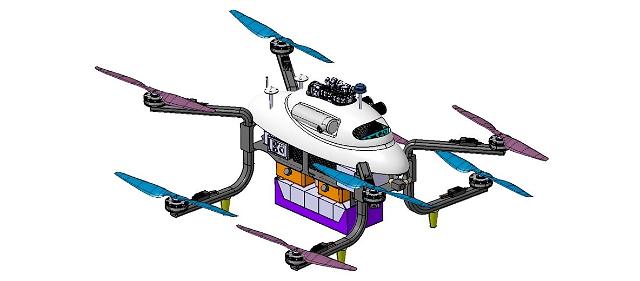
[Courtesy of LIG Nex1]
LIG Nex1 said it would lead the development of a fuel cell cargo drone that can be controlled remotely or fly automatically with a payload of 200 kilograms. Some 44.3 billion won ($39.3 million) would be invested for five years to commercialize the cargo drone by 2025. It can be used for transporting supplies to remote or isolated troops.
The range of multi-copter drones is limited due to their relatively short battery life. Hydrogen fuel cell drones with an extended flight time could become a game-changer in the global market for unmanned flying systems. The Ministry of Trade, Industry and Energy would link the cargo drone project to urban air mobility (UAM), an ecosystem covering personal air vehicles and infrastructure. South Korea aims to commercialize drone taxis in 2025.
To beef up technology development capabilities, LIG Nex1 forged a business alliance with Hancom, a comprehensive information technology group, on May 21. They would cooperate for the development of software in the fields of artificial intelligence, satellites and drones. "We will focus our capabilities on securing technological advantages in future fields such as aerospace, drones, satellites, and D.N.A (data, 5G and AI)," LIG Nex1 CEO Kim Ji-chan said in a statement.
Hancom has made aggressive investments in the drone sector. In March, the group acquired Awesome Tech, a domestic developer of special unmanned aerial vehicles such as smart parachutes and paragliders, in a bid to create a new value chain using drone technologies.
Drones that communicate with their pilots or a control tower via wireless communication frequently lose connection due to radio interference or when they fly out of radio coverage. Awesome's smart parachute and paraglider technologies allow GPS-based drones to deploy a parachute in case of a connection loss or a machine malfunction and safely self-navigate to a designated area.
Copyright ⓒ Aju Press All rights reserved.



